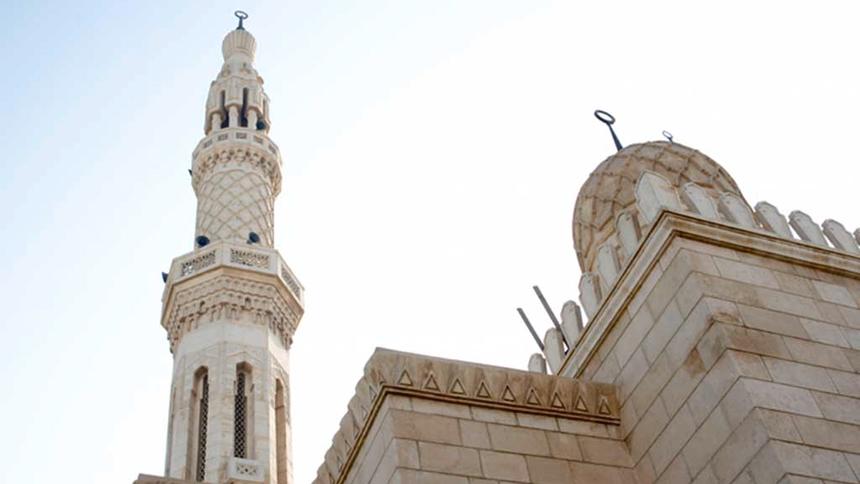
RNA - A talk on the alleged corruption of schools by Islam is scheduled Thursday in Brainerd—but local officials say any mention of Islam in the curriculum is to inform, not to evangelize. The presentation will be given at the Oak Street Chapel by Usama Dakdok, who leads The Straight Way Ministry and travels the Midwest, lecturing about what he feels are the encroaching dangers of Islam.
The talk, entitled "Lies in the Textbooks," will focus on the "lies and deceit of Islam," according to Tony Bauer of Nisswa, who wrote one of three letters to the editor promoting the event. Bauer claimed Islam is finding a foothold in Brainerd, "in our own public schools, of all places."
Three different officials from Brainerd Public Schools pointed out their curriculum aligned with state standards.
Tim Murtha, director of teaching and learning, said all of the curriculum was also subject to public review through the school board.
In the district's curriculum, religion comes up mainly in social studies of other cultures—for example, the relationship between Islam and the Ottoman Empire, Murtha said.
"When we address any religion or any belief system, we make sure that we're doing so in a very neutral manner that's just providing the facts of what that religion is; how it's related to the culture that they're studying at that time," he said.
They teach religion so students will understand it, not so that they'll believe it, Murtha said. The curriculum doesn't talk about Islam in qualitative sense, that is, saying whether it's good or bad, he said.
"That wouldn't be in support of any (curriculum) standard," he said. "The purpose of exposing students to elements of other cultures is to give them information along with the critical reasoning skills for them to make their own decisions about this. We should not be in the business of telling people how to think."
The time spent on each religion is relative to each unit on a particular culture, but no religion gets its own unit, Murtha said.
"There are no specific units on Islam, or any other religion for that matter," he said. "They're just part of whatever region or whatever culture we're studying at any given time."
There is no world religions class at Brainerd, and the only world languages offered for instruction are Spanish and American sign language—not Arabic, Murtha said. Students are most likely to encounter mentions of Islam when they reach the high school level, and as part of world history, or, to a lesser extent, American history.
Although one or two people have come in with questions about Islam in the curriculum, the district encourages the community to ask questions, Murtha said.
Asked about where he thought concerns about Islam in the schools might be coming from, Murtha said it was originating from a world concerned about cultural identity and current events in the news.
"These are understandable concerns," he said. "Fortunately, we're in a position where we can clearly answer that what we do is positive."
Brainerd High School Principal Andrea Rusk said the school's curriculum takes a comprehensive coverage of religion in that not just major religions like Christianity and Islam are covered. Islam might also come up during informal class discussions of news events, outside of the formal teachings, she said.
"I would like to believe that we're a pretty global and culturally aware community and school," she said.
Having served eight years so far as principal, Rusk said she hadn't heard any feedback at all regarding religion in the curriculum from students.
"We've had no students come forward with any concerns or with any negative feedback in regards to ... world history, and the religions that are being taught within," she said. "We try to provide our students with an opportunity to share information, and feel respected for their own values and beliefs."
One parent contacted the district with concerns, but the parent didn't contact Rusk directly, she said.
"I've had more calls in regards to the date of prom than I have had for this," she said.
Laine Larson, superintendent, also said she hadn't heard any complaints from the students. She said the curriculum is weighed in upon by the district advisory committee and aligns with state standards.
"At this point, I don't see that there will be any changes to the direction that they go in the curriculum at all," she said. "We believe that we're doing a really great job."
847/940